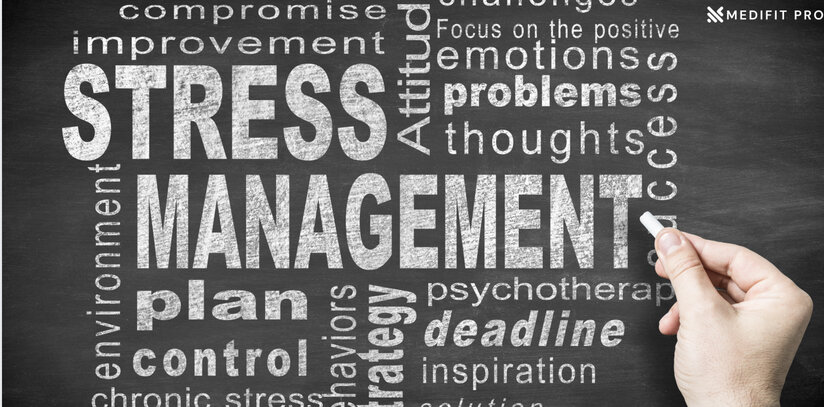Stress and anxiety are a part of life. They are natural reactions to certain situations and can even be beneficial in small doses. However, when stress and anxiety become chronic, they can take a toll on our mental and physical well-being. In this blog post, we will explore what stress and anxiety are, what causes them, the symptoms of stress and anxiety, the drawbacks of stress and anxiety, and most importantly, how to overcome them.
What is Stress and Anxiety?
Stress is the body’s response to a perceived threat or challenge. It is a natural and normal reaction to everyday events, such as starting a new job or moving to a new home. Stress can be short-term, such as a one-time event, or it can be long-term, such as a chronic condition.
Anxiety, on the other hand, is a feeling of worry or fear that is usually out of proportion to the situation. It is a normal emotional response to certain situations, such as taking a test or giving a presentation. However, when anxiety becomes chronic, it can lead to the development of an anxiety disorder.
What Causes Stress and Anxiety?
Stress and anxiety can be caused by a wide range of factors. Some common causes include:
• Life events, such as the loss of a loved one, a divorce, or a job loss
• Chronic conditions, such as a chronic illness or a disability
• Trauma, such as experiencing or witnessing a traumatic event
• Environmental factors, such as living in a noisy or dangerous neighborhood
• Genetics, as certain genetic predispositions can make a person more susceptible to stress and anxiety
Symptoms of Stress and Anxiety
The symptoms of stress and anxiety can vary from person to person, but some common symptoms include:
• Physical symptoms, such as headaches, muscle tension, and fatigue
• Emotional symptoms, such as feeling anxious, irritable, or overwhelmed
• Behavioral symptoms, such as difficulty sleeping, restlessness, and difficulty concentrating
• Cognitive symptoms, such as difficulty remembering things and racing thoughts
The Drawbacks of Stress and Anxiety
When stress and anxiety become chronic, they can have a negative impact on our physical and mental health. Some of the drawbacks of stress and anxiety include:
• Increased risk of developing chronic conditions, such as heart disease and diabetes
• Weakened immune system, making us more susceptible to colds and flu
• Increased risk of developing mental health conditions, such as depression and anxiety disorders
• Difficulty sleeping, leading to fatigue and decreased productivity
• Difficulty with relationship and social life
How to Overcome Stress and Anxiety
The good news is that there are many things that we can do to overcome stress and anxiety. Here are a few proven strategies for improving mental health and well-being:
1. Practice relaxation techniques. This can include yoga, meditation, or deep breathing exercises. These techniques can help release tension and promote relaxation, making it easier to manage stress and anxiety.
2. Exercise regularly. Regular exercise can help reduce stress and anxiety by releasing endorphins, the body’s natural mood-boosting chemicals. also read How to Stay Motivated for Exercise
3. Get enough sleep. Lack of sleep can make stress and anxiety worse. Try to get at least 7-8 hours of sleep each night. Also read Sweet dreams : Tips to Improve Your Sleep
4. Eat a healthy diet. Eating a diet that is high in fruits, vegetables, and whole grains can help improve mood and reduce stress and anxiety.
5. Connect with others. Social support can be a powerful tool in managing stress and anxiety. Try to spend time with friends and family, or consider joining a support group or therapy group.
6. Find ways to manage stress in daily life. This can include time management, learning to say “no”, and setting boundaries.
7. Seek professional help. If stress and anxiety are impacting your daily life, it may be a good idea to see a therapist or counselor for additional help.
8. Try natural remedies. Some natural remedies, such as aromatherapy, herbal supplements, and acupuncture, can help reduce stress and anxiety.
9. Get creative. Engage in creative activities such as painting, drawing, or writing can be a great way to express yourself and to take your mind off of stress and anxiety.
10. Practice mindfulness. Mindfulness is the practice of being present in the moment and paying attention to your thoughts and feelings. It can help reduce stress and anxiety by teaching you to focus on the present and not worry about the future or the past.
11. Be kind to yourself. Remember to be kind and compassionate to yourself. Stress and anxiety can make us hard on ourselves, but it’s important to remind yourself that it’s normal to feel this way and to give yourself credit for making progress.
12. Challenge negative thoughts. One of the main causes of anxiety is negative thought patterns. Challenge these thoughts by questioning their validity and replacing them with more positive thoughts.
13. Get outside. Spending time in nature has been shown to reduce stress and anxiety. Try to spend some time in nature each day, whether it’s going for a walk in the park or gardening.
14. Practice gratitude. Focusing on what you are grateful for can help shift your focus away from stress and anxiety. Try writing a gratitude journal or sharing your gratitude with others.
15. Take a break from social media. Social media can be a major source of stress and anxiety. Try to take a break from social media for a set period of time each day or week. Also read Impact of Social media on Women’s Mental Health
16. Get moving. Physical activity can help to release endorphins, the body’s natural mood-boosting chemicals. Try to get at least 30 minutes of moderate exercise each day.
17. Try aromatherapy. Certain essential oils like lavender, chamomile, and valerian root can help promote relaxation and reduce anxiety. Try adding a few drops of oil to your bathwater or using a diffuser in your bedroom.
18. Learn to accept uncertainty. Anxiety often stems from a fear of the unknown. Learning to accept uncertainty can help reduce anxiety by teaching you to focus on what you can control and to let go of what you can’t control.
19. Find a hobby. Engaging in a hobby you enjoy can take your mind off of stress and anxiety and give you a sense of purpose and accomplishment.
20. Practice self-care. Remember to take care of yourself, both physically and emotionally. This can include things like eating a healthy diet, getting enough sleep, and taking time for yourself each day.
In conclusion, anxiety is a normal part of life, but it can become debilitating if it becomes chronic. By following these tips and strategies, you can learn to manage anxiety and improve your overall well-being. Remember that it’s important to take care of your mental health just as you would take care of your physical health. Seek professional help if needed and be patient with yourself as you work towards overcoming anxiety.
Reference
The Science of Stress and How to Manage It”: https://www.psychologytoday.com/us/basics/stress


























Recent Comments